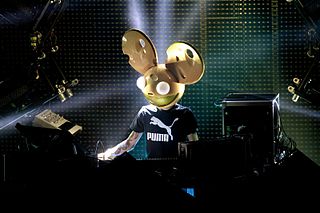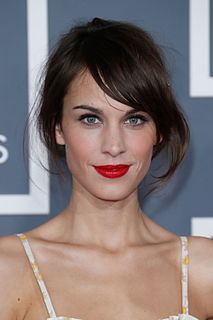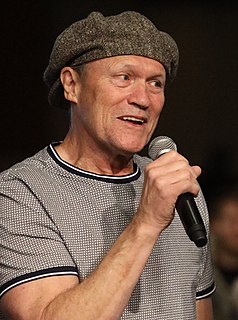A Quote by Thomas Dolby
I started looking at small companies that were running a sort of virtual reality cottage industry: I had imagined that I would just put on a helmet and be somewhere else - that's your dream of what it's going to be.
Related Quotes
By making marijuana illegal, the agricultural people can't grab hold of it like they did with corn and wheat. So those companies are scrambling around trying to get hold of it, but they can't, because it's a cottage industry, and it will always be a cottage industry. Because the minute the big companies try to make it their own, like they did with soybeans...like Monsanto, they put their own patent on seeds, and you can't do that with marijuana.
Back in the 1980s, when the internet was only available to a small number of pioneers, I was often confronted by people who feared that the strange technologies I was working on, like virtual reality, might unleash the demons of human nature. For instance, would people become addicted to virtual reality as if it were a drug? Would they become trapped in it, unable to escape back to the physical world where the rest of us live? Some of the questions were silly, and others were prescient.
Usually, companies, when they approach other people to do VR, they're like, 'We're gonna offer a virtual reality experience' - to me, that usually means they're gonna put a bunch of 360° cameras in a room, film something, and wrap the video in a sphere so you can head-track and look around. To me, that's not virtual reality. That's 360° video.
One of my friends started a company in 1997, seven years before Facebook, called SocialNet. And they had all these ideas, and you could be, like, a cat, and I'd be a dog on the Internet, and we'd have this virtual reality, and we would just not be ourselves. That didn't work because reality always works better than any fake version of it.
Claudia knew that she could never pull off the old-fashioned kind of running away. That is, running away in the heat of anger with a knapsack on her pack. She didn't like discomfort; even picnics were untidy and inconvenient: all those insects and the sun melting the icing on the cupcakes. Therefore, she decided that her leaving home would not be just running from somewhere but would be running to somewhere.
We had a thing there where you could turn in - it was some sort of recycling program - the bottle caps of RC Cola. You'd turn in 12 of them, and you'd get a ticket to see a movie. That's how I started going to the movies. Running around the neighborhood looking for bottle caps. We were like little scavengers.
When we first started our internet company, 'China Pages', in 1995, and we were just making home pages for a lot of Chinese companies. We went to the big owners, the big companies, and they didn't want to do it. We go to state-owned companies, and they didn't want to do it. Only the small and medium companies really want to do it.
[Donald Trump] puts a miner's hat on.The media, some in it, were concerned - or hoping - that Trump would have helmet hair when he took the helmet off. They were hoping that he had so much hair spray on, that the miner's helmet he was wearing would leave an indentation in his hair. That was actually a subject in some of the stories I read. So the MacGuffin... There's no media. There isn't any news.



































